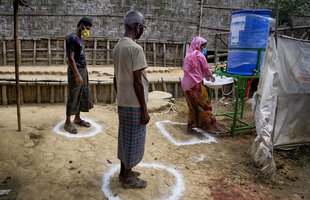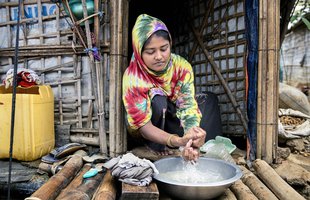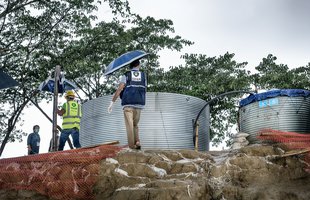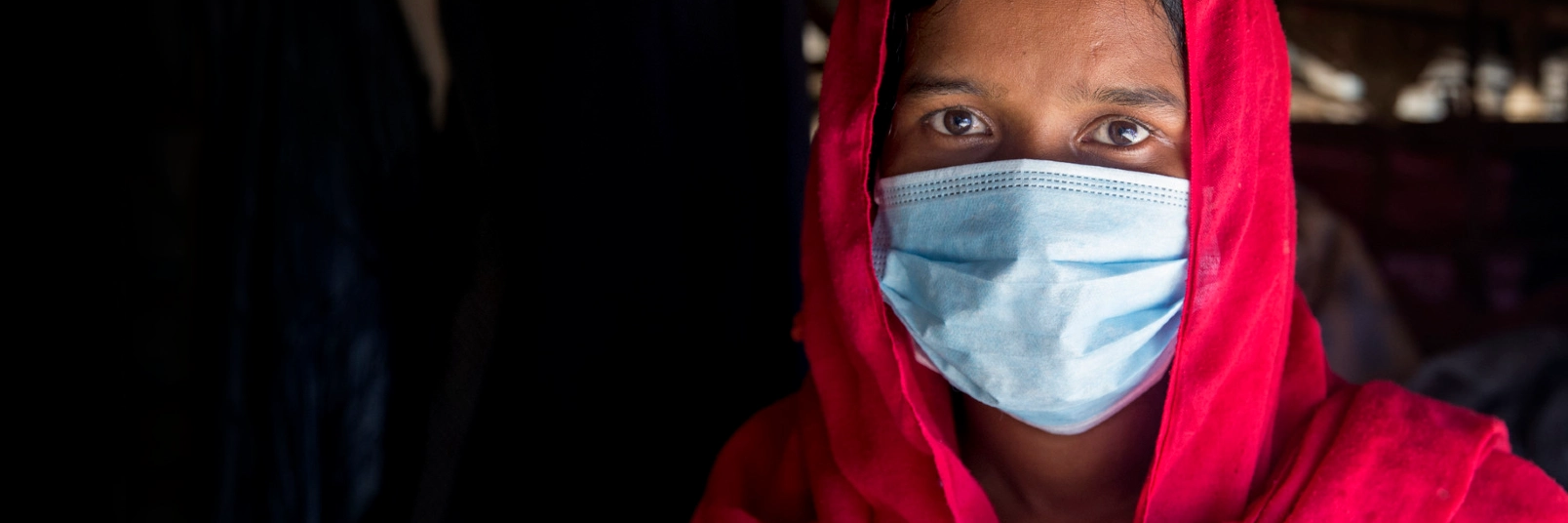Refugees in Bangladesh
Rohingya crisis appeal
Close to a million Rohingya people forced to flee terrifying violence in Myanmar – in what the UN called a "textbook definition of ethnic cleansing" – are now living in overcrowded conditions in the world's largest refugee camp in Bangladesh. Families have limited access to clean water, soap or food, and urgently need assistance.
Last updated: 09 April 2024
We are supporting people to
-

Survive today by helping people stay clean and healthy
We're helping people stay healthy by installing water points, toilets and showers, and distributing soap and other essentials like sanitary towels. We have recruited more than 300 Rohingya volunteers to help us train 11,000 refugees about the importance of good hygiene.
-

Prepare for tomorrow by helping people keep themselves safe
We have installed solar-powered lights around the camp and provided torches and portable solar lanterns so that refugees - especially women - feel safer leaving their shelters after dark to reach water points and toilets.
-

Adapt for the future with sustainable water and waste systems
Oxfam has built more than 600 wells which help to prevent water being contaminated after a heavy rain fall and leading to an outbreak of disease. We're installing a large sewage facility to process the waste of 50,000 people, which will rise to 100,000.
The health facilities that existed pre-coronavirus were already limited. Since the pandemic started, temporary isolation facilities have been set up to support those who fall ill, but these are limited too. Malnutrition is also a serious concern. People have limited access to food and many have lost their sources of income, making food unaffordable.
Oxfam is working with its local partners to set up handwashing stations, distribute kits to families that include essential hygiene items, train up health care promoters to share information in their communities on how to stay protected. And giving families cash to buy the food they desperately need.
Fabeha Monir/Oxfam
We train volunteers so they can teach other refugees and spread good hygiene messages far and wide.”
Iffat, Oxfam Senior Public Health Promotion & Community Engagement, Bangladesh
How we spend your money
For every £1 you donate to this emergency appeal, we will allocate 9p of your donation to cover general support and running costs. There is a small chance that we will raise more money than is needed for this appeal. If this happens, we'll spend any additional funds on other Oxfam projects – wherever the need is greatest.
